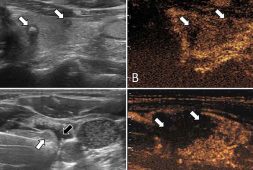
Sufficient intake of calcium and vitamin D plays a crucial role in maintaining bone strength and reducing the risk of osteoporosis. Furthermore, a comprehensive study tracking postmenopausal women for more than two decades revealed that the supplementation of these nutrients did not influence mortality rates from any cause.
Key Insights:
- Benefit for Postmenopausal Women: Daily intake of calcium and vitamin D supplements among postmenopausal women demonstrated a noteworthy reduction in cancer-related mortality risk. This finding underscores the potential protective effect of these supplements against cancer in this demographic.
- Caution with Heart Health: Conversely, the same regimen showed a slight elevation in the risk of mortality from heart disease. This observation suggests the need for cautious consideration of cardiovascular health implications when prescribing these supplements to postmenopausal women.
- Neutral Effects on Other Outcomes: Interestingly, the supplementation exhibited no discernible impact on the likelihood of hip fracture occurrence or overall mortality rate. This neutrality highlights the complexity of the relationship between these supplements and health outcomes beyond cancer and heart disease.
A comprehensive analysis stemming from the groundbreaking Women’s Health Initiative trial has unearthed intriguing insights into the effects of calcium and vitamin D supplements on women’s health outcomes. The study, documented in the Annals of Internal Medicine on March 12, divulged that while the supplementation regimen correlated with a 7 percent decrease in the long-term risk of cancer-related mortality among women, it concurrently manifested a 6 percent escalation in the likelihood of death attributed to heart disease.
This meticulous scrutiny, conducted on a cohort of over 36,000 postmenopausal women, represents the largest-ever randomized trial appraising the repercussions of calcium and vitamin D supplementation. Initially designed to assess outcomes such as fracture risk, cancer incidence, and cardiovascular health, the trial’s outcomes were predominantly inconclusive, as highlighted by the authors.
However, in a bid to revisit these findings after more than two decades, the investigators meticulously combed through available data on health events and mortality rates. Despite this concerted effort, the overarching impact of the supplementation combo on mortality from any cause remained statistically insignificant. Furthermore, the analysis failed to uncover any significant effect on the incidence rates of hip fractures.
This extensive reevaluation of the Women’s Health Initiative trial not only sheds light on the complex interplay between calcium, vitamin D supplementation, and women’s health but also underscores the need for continued research to elucidate the nuanced implications of these interventions.
“The findings demonstrate the importance of longer-term research,” lead author Cynthia Thomson, PhD, RD, said. She is a professor and the director of the Zuckerman Family Center for Prevention and Health Promotion at the College of Public Health at the University of Arizona in Tucson.
She notes that while studies are typically funded for five-year cycles, cancer can require decades to develop fully.
Taking Calcium and Vitamin D Expert Recommendation
Maintaining robust bone health and staving off osteoporosis hinges significantly on ensuring an adequate intake of both calcium and vitamin D. Osteoporosis, a condition characterized by weakened bones prone to fractures, particularly affects postmenopausal women, with an alarming statistic indicating that one in three women over the age of 50 suffer from this condition. The repercussions of osteoporosis can be dire, as it escalates the vulnerability to fractures resulting from minor accidents or even routine daily activities.
According to Marilyn Tan, MD, an esteemed figure in the medical field affiliated with Stanford Health Care in California, the current guideline recommends a daily calcium intake of 1000 milligrams (mg) for the general population, encompassing both males and premenopausal females. This recommendation encompasses dietary sources as well as supplements, underscoring the pivotal role of calcium in bolstering bone strength and overall skeletal health.
“For postmenopausal females, the goal is 1,200 mg calcium daily in diet and supplements. Excessive calcium has risks, including kidney stones, gastrointestinal symptoms, and high blood calcium,” Dr. Tan said.
Adequate vitamin D intake is crucial for various bodily functions, such as bolstering immunity and regulating glucose metabolism. It plays a pivotal role in maintaining bone health by facilitating calcium absorption in the body, typically synthesized in the skin upon exposure to sunlight.
Health experts advise a daily intake of 600 international units (IU) for individuals aged 1 to 70 years old. For males over 70 and postmenopausal women, a higher intake of at least 800 IU of vitamin D per day is recommended.
Excessive consumption of vitamin D can result in adverse effects including nausea, vomiting, loss of appetite and weight, constipation, weakness, confusion, irregular heart rhythms, and potential kidney complications such as stones and damage.
Study Findings and Caveats
The conclusions drawn from the study should be approached with careful consideration due to the examination of various conditions, as highlighted by the authors. They pointed out that some of the observed findings might have arisen by chance. Additionally, the study’s limitation in participant diversity, with a predominantly white and highly educated sample, was acknowledged by the authors.
Tan noted that while previous research has generated substantial interest in the role of vitamin D in health, particularly in relation to reduced cancer incidence, the study’s findings regarding calcium supplementation offer a distinctive contribution to the existing body of knowledge.
“This study suggests a possible delayed effect of calcium plus vitamin D supplementation,” she said.
The Bottom Line on Calcium and Vitamin D Supplements
Based on this study, it’s difficult to tease out the individual effects of calcium versus vitamin D, says Tan.
For bone health, the recommendations for the calcium intake goals have remained the same, she explained. “That said, for patients where heart disease risk is a concern, I generally recommend dietary sources of calcium over calcium supplements,” she said.
The amalgamation of recent research findings alongside prior investigations into the effects of vitamin D leads to a clear directive for postmenopausal women: prioritize meeting the recommended daily calcium intake through dietary sources and consider incorporating a vitamin D supplement if deficient. Dr. Stephanie Faubion, the Director of the Mayo Clinic Center for Women’s Health in Jacksonville, Florida, and Medical Director of the Menopause Society, emphasizes the importance of this approach, although she wasn’t directly involved in the cited study.
For those presently using a combined vitamin D and calcium supplement who harbor uncertainties regarding their susceptibility to heart disease, seeking guidance from a healthcare professional is advisable, according to Tan.



